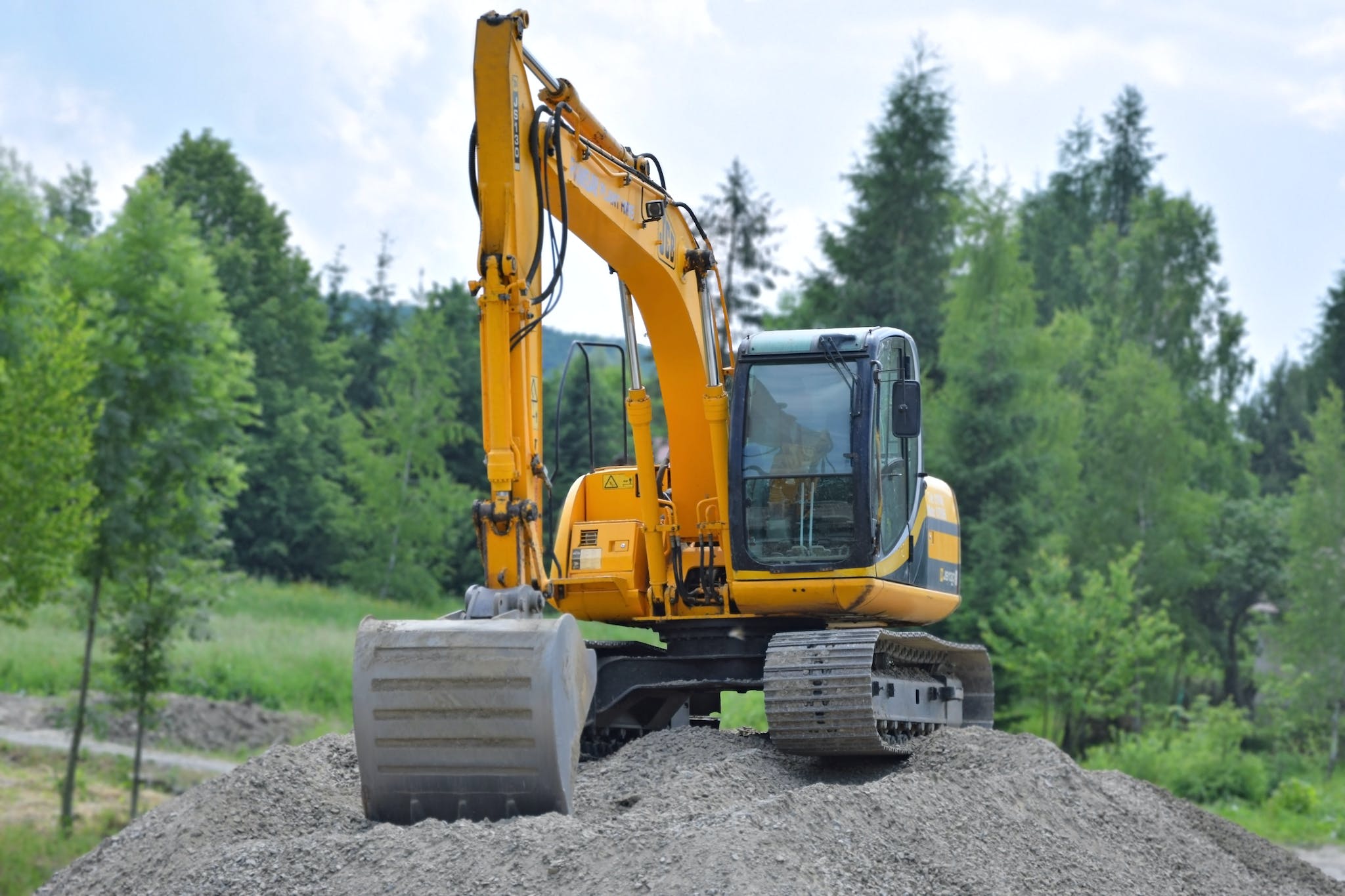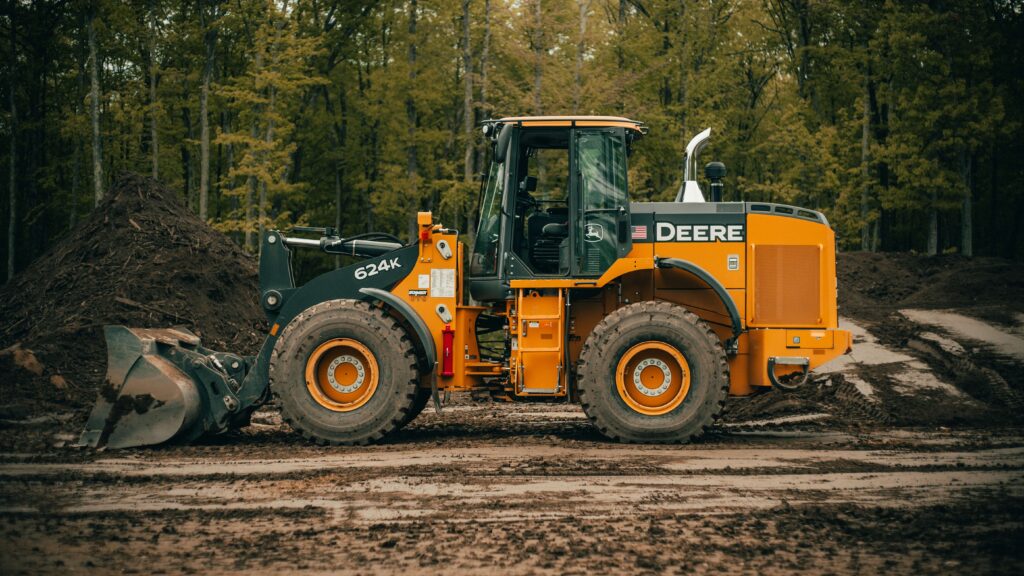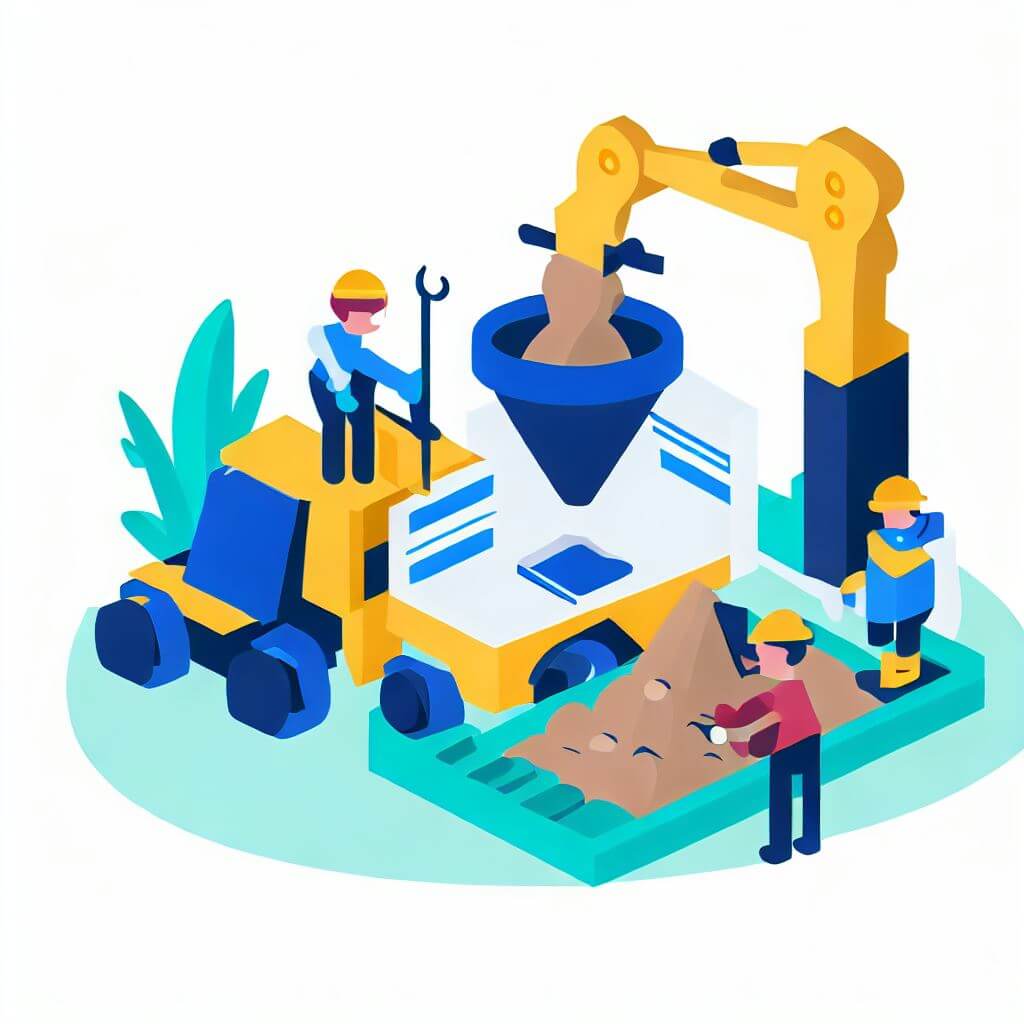
DIY vs. Professional Excavation: Cost Analysis and Considerations
Excavation projects are crucial for various construction and landscaping endeavors, but choosing between DIY excavation and hiring a professional contractor for DIY vs. professional excavation can be challenging. This article aims to provide readers with a comprehensive cost analysis and considerations for making an informed choice.
Excavation is a fundamental step in many construction projects, from building foundations to landscaping improvements. The decision between DIY excavation and hiring a professional excavation contractor has significant implications for your project’s outcome, budget, and safety.
| Key Takeaways for DIY vs. Professional Excavation |
|---|
| 1. Project Assessment: Consider project complexity, size, and your expertise when deciding between DIY and professional excavation. |
| 2. Safety Prioritization: Safety should be a top concern, with professional contractors often better equipped to manage risks. |
| 3. Cost Estimation: Calculate DIY excavation costs meticulously, including equipment, materials, permits, and hidden expenses. |
| 4. Long-Term Costs: Weigh potential long-term costs, such as repairs, when making your decision. |
| 5. Professional Expertise: Professional excavation contractors offer expertise, specialized equipment, and regulatory compliance. |
| 6. Time Efficiency: Professionals can expedite projects, saving you time in the long run. |
| 7. Risk Mitigation: Professionals have safety protocols in place to minimize risks during excavation. |
| 8. Reputable Contractors: Research and choose reputable excavation contractors with a good track record. |
| 9. Environmental Considerations: Ensure your project is environmentally friendly by minimizing soil erosion and managing runoff. |
| 10. Balance Cost and Quality: Striking a balance between cost-effectiveness and project quality requires careful evaluation. |
| 11. Informed Decision: Evaluate all factors to make an informed choice that aligns with your project’s needs and your capabilities. |
Section 1: The DIY Excavation Experience
1.1 Pros of DIY Excavation
Opting for DIY excavation projects independently offers several advantages. DIY enthusiasts often appreciate the sense of accomplishment that comes from completing a challenging task. Additionally, there’s the potential for cost savings, as labor expenses are minimized.
Personal anecdotes and success stories serve as inspiration for those considering DIY excavation, highlighting the satisfaction of mastering a new skill and saving money in the process.
1.2 Cons of DIY Excavation
However, DIY excavation has its drawbacks. Safety should be a top concern, as untrained individuals are more susceptible to accidents and injuries. Inadequate knowledge and experience can lead to costly mistakes, such as damaging utility lines or property.
Sharing cautionary tales and common DIY excavation mishaps underscores the importance of proper planning and preparation when choosing DIY excavation.
Section 2: Hiring a Professional Excavation Contractor
When it comes to excavation for your project, making the choice between handling it yourself or hiring a professional excavation contractor is a crucial decision. Let’s explore the advantages of opting for professional excavation services and how they compare to the DIY approach.
2.1 Advantages of Professional Excavation

Expertise and Experience: Professional excavation contractors bring a wealth of knowledge and experience to the table, setting the stage for a comprehensive comparison of DIY vs. professional excavation. They have a deep understanding of excavation techniques, soil types, and potential challenges that may arise during the process. This expertise ensures that your project is executed efficiently and with precision.
Specialized Equipment: One critical aspect of the DIY vs. professional excavation debate is access to specialized equipment. Professionals are equipped with state-of-the-art machinery and tools specifically designed for excavation. This not only speeds up the process but also ensures that the work is done correctly and safely. They have access to excavators, backhoes, bulldozers, and other heavy equipment that DIYers typically don’t possess.
Complex Project Handling: For complex excavation projects, which are a significant consideration in the context of DIY vs. professional excavation, involving factors like sloping terrain, underground utilities, or the need for precise grading, professionals are well-equipped to handle these challenges. They have the skills and equipment to navigate such intricacies effectively.
Regulatory Compliance: Excavation often involves dealing with permits, environmental regulations, and safety codes. Professional contractors are well-versed in navigating these bureaucratic hurdles, ensuring that your project remains compliant with local laws and regulations.
Time Efficiency: Considering the DIY vs. professional excavation cost analysis, hiring professionals can save you significant time. They can complete excavation projects swiftly, allowing you to move on to the next phase of your project without unnecessary delays.
Risk Mitigation: Another key aspect in the DIY vs. professional excavation discussion is risk management. Professionals understand the risks associated with excavation, including potential hazards like cave-ins or utility line strikes. They have safety protocols in place to mitigate these risks, reducing the likelihood of accidents.
Insurance Coverage: In the context of DIY vs. professional excavation, it’s worth noting that reputable excavation contractors typically carry insurance that covers any damage or accidents that may occur during the excavation process. This provides peace of mind and financial protection in case of unforeseen circumstances.
2.2 Costs of Professional Excavation
While the advantages of hiring professional excavation services are evident in the context of DIY vs. professional excavation, it’s essential to understand the cost structure associated with this option.
Project Size and Complexity: When evaluating the costs of DIY vs. professional excavation, the size and complexity of your project play a significant role. Larger and more intricate projects typically come with higher costs when hiring professionals.
Location: Your geographical location can also impact the cost of professional excavation in the context of DIY vs. professional excavation. Urban areas with higher living costs and regulations may lead to higher rates for excavation services.
Materials and Disposal: Excavation contractors may charge separately for materials, such as gravel or fill dirt, and the disposal of excess soil. Make sure to discuss these costs upfront to avoid surprises in the context of DIY vs. professional excavation.
Hourly Rates vs. Fixed Quotes: When considering DIY vs. professional excavation costs, it’s essential to note that some contractors charge by the hour, while others provide fixed quotes for the entire project. Be sure to clarify the billing method with your chosen contractor.
Additional Services: If your project requires additional services in the context of DIY vs. professional excavation, such as landscaping or post-excavation site preparation, these may incur additional costs.
Understanding these factors will help you budget effectively when hiring professional excavation services in the context of DIY vs. professional excavation. It’s also advisable to obtain multiple quotes from different contractors to ensure you are getting a competitive price for your project.
Section 3: Cost Comparison
3.1 Calculating DIY Excavation Costs
Estimating DIY excavation costs involves breaking down expenses, such as equipment rentals, materials, permits, and potential hidden costs. Tips on effective budgeting ensure that DIYers have a clear understanding of the financial commitment.
3.2 Comparing DIY and Professional Costs
A side-by-side cost comparison for a hypothetical project illustrates the potential cost differences between DIY excavation and hiring professional excavation services. Long-term cost implications, such as maintenance and repairs, should also be considered.
Section 4: Key Considerations

4.1 Project Complexity and Scale
Project complexity and size play a vital role in the decision-making process. We discuss when DIY excavation may be suitable for smaller, simpler tasks and when professional expertise is essential for larger, intricate projects.
4.2 Safety and Risk
Safety should be a paramount concern. We compare the safety measures taken by professionals versus DIYers and highlight the potential risks associated with each option. Safety should never be compromised.
4.3 Time and Convenience
We analyze the time commitment required for both DIY excavation and professional excavation. Considering convenience and scheduling can help individuals make choices that align with their work-life balance.
Section 5: Making the Informed Decision
In summary, choosing between DIY excavation and hiring a professional excavation contractor is a significant decision. Readers are encouraged to weigh the pros and cons, considering their capabilities, budget, and project specifics. With that being said, it is important to keep these factors in mind:
Safety First: Prioritize safety above all else. Professional excavation contractors have the knowledge and experience to mitigate risks effectively. DIY excavation may save money, but it can also expose you to potential hazards.
Expertise Matters: Consider the complexity of your project. While small, straightforward tasks may be manageable on your own, larger, intricate projects often demand professional expertise and specialized equipment.
Budget Realistically: Calculate the true costs of both DIY and professional excavation, including long-term expenses. Remember that professional services may offer better long-term reliability.
Efficiency Counts: Time is money, and professional contractors can significantly expedite your project. This can be especially crucial in time-sensitive endeavors.
Environmental Responsibility: Keep environmental considerations in mind. Both DIY and professional excavation can be conducted responsibly with proper planning.
Balancing Act: Striking a balance between cost-effectiveness and project quality requires careful evaluation. What may initially seem like a cost-saving measure could lead to more significant expenses later on.
Informed Decision: Ultimately, your choice should be well-informed. Consider your capabilities, project specifics, and budget constraints before making a decision. Seek advice from experts if necessary.
In the DIY vs. professional excavation debate, there is no one-size-fits-all answer. Each project is unique, and the best choice depends on various factors. Weigh your options carefully, prioritize safety, and aim for a decision that ensures the success of your excavation endeavor. Whether you choose to go the DIY route or hire a professional, your project’s outcome and your peace of mind are what truly matter.
- Excavation Cost Calculator: Use our online calculator to estimate excavation project costs based on your specific requirements.
FAQs
When making this decision, consider factors such as project complexity, your level of expertise, safety concerns, project size, and budget constraints. These elements play a crucial role in determining whether DIY excavation or hiring a professional is the better choice.
Safety is paramount in any excavation project. When undertaking DIY excavation, you must be aware of potential risks like cave-ins, utility line strikes, and unstable soil conditions. Professional excavation contractors are trained to mitigate these risks effectively.
To estimate DIY excavation costs, consider equipment rentals, materials, permits, labor (including your own time), and potential hidden expenses. It’s essential to create a detailed budget to ensure your project stays within financial constraints.
Read More
Learn how much it costs to Excavate Land
- DIY vs. Professional Excavation: Cost Analysis and Considerations
 Excavation projects are crucial for various construction and landscaping endeavors, …
Excavation projects are crucial for various construction and landscaping endeavors, …DIY vs. Professional Excavation: Cost Analysis and Considerations Read More »
- Regional Variations in Excavation Costs: What to Expect
 Key Takeaways: Key Takeaways 1. Understanding Regional Variations: Recognize that …
Key Takeaways: Key Takeaways 1. Understanding Regional Variations: Recognize that …Regional Variations in Excavation Costs: What to Expect Read More »
- Types of Excavation Equipment and Their Impact on Costs
 Key Takeaways: Key Takeaways Proper selection of excavation equipment is …
Key Takeaways: Key Takeaways Proper selection of excavation equipment is …Types of Excavation Equipment and Their Impact on Costs Read More »
- Comparing Excavation Pricing: Hourly Rates vs. Fixed Contracts
 Introduction In the world of excavation, comparing excavation hourly rates …
Introduction In the world of excavation, comparing excavation hourly rates …Comparing Excavation Pricing: Hourly Rates vs. Fixed Contracts Read More »
- Excavation Cost Estimation Methods: From Quotes to Budgeting
 At J Hodge Enterprises, we understand that one of the …
At J Hodge Enterprises, we understand that one of the …Excavation Cost Estimation Methods: From Quotes to Budgeting Read More »
